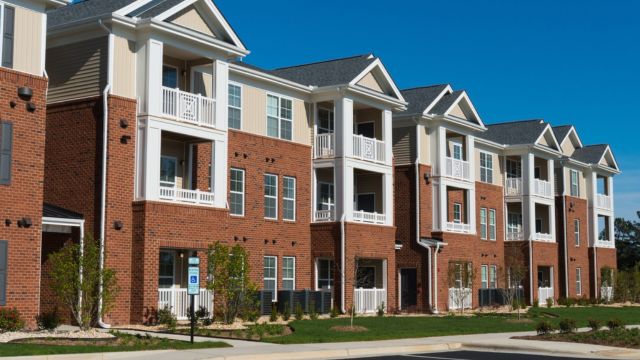Dallas Takes Bold Step: Unveils Plan to Transform City Properties into Permanent Supportive Housing for Homeless
With a new program to turn a city-owned property into Permanent Supportive Housing (PSH) for the unsheltered, the City of Dallas is stepping up to the plate in the fight against homelessness.
A Notice of Funding Availability (NOFA) for the property at 1950 Fort Worth Ave. has been released, according to a joint announcement from the Department of Housing & Neighborhood Revitalization and the Office of Homeless Solutions.
According to the city of Dallas, developers who are prepared to purchase and renovate the property into at least 40 residential units may now apply.
According to nbcdfw.com, Developers are eager to craft a plan that will transform this plot into a ray of hope because they have been granted a large $2.34 million starting pot in public funds.
In addition to renovating the site, the NOFA—which was made public on January 9—offers developers the chance to operate the facility as PSH and significantly improve the lives of Dallas’ most vulnerable residents.
To be qualified, developers must further obtain extra financial funds to finish the rehabilitation procedure.
On the Department of Housing & Neighborhood Revitalization website, interested parties have 60 days to download the NOFA specifics for the site before it closes at 5:00 p.m. on March 11. In addition, two online pre-submission conferences have been set for January 23 and February 27 to address any questions candidates may have about the application procedure.

Microsoft Teams will be used to hold these sessions, which are intended to promote an open discussion on the details of the development.
With internal evaluations and application scoring by a specialized assessment committee scheduled to occur after the submission deadline, the NOFA process timeline lays out a methodical march toward realizing this PSH dream. The contract will be awarded by the city council in June 2024 after they have had time to deliberate. If everything proceeds under the city’s specified timeline, developers will be able to completely commence repairs in July.
The Dallas Housing Crisis:
Similar to several metropolitan areas across the country, Dallas has been battling an ongoing housing crisis that has been made worse by social and economic problems.
The issue of homelessness persists, as both individuals and families encounter difficulties in locating stable and safe housing.
City officials have started an ambitious project to convert city-owned houses into long-term supportive housing because they understand how urgent the situation is.
Specifications of the Scheme:
The proposed strategy calls for the identification and adaptive reuse of excess city properties to produce long-term supportive housing units.
These apartments will address the underlying causes of homelessness by offering resources such as drug treatment, job training, mental health support, and other necessary services in addition to housing. The emphasis is on giving a thorough and caring approach that goes above and beyond simple housing.
To make sure the plan is carried out successfully, city officials have consulted with a variety of stakeholders, such as community leaders, nonprofits, and housing activists. The goal of cooperation is to make the most of this project and develop a template that other communities facing comparable difficulties can follow.
The advantages of permanent supportive housing include stability and attention to the multifaceted needs of those who are homeless, two factors that have shown permanent supportive housing to be an effective tactic in the fight against homelessness. This strategy goes beyond just giving someone a place to live and instead concentrates on developing a nurturing atmosphere that promotes recovery, self-improvement, and community integration.
By offering long-term solutions as opposed to band-aid remedies, this model can end the cycle of homelessness. People who are homeless can reconstruct their lives with the right support networks in place if housing is combined with critical services.
